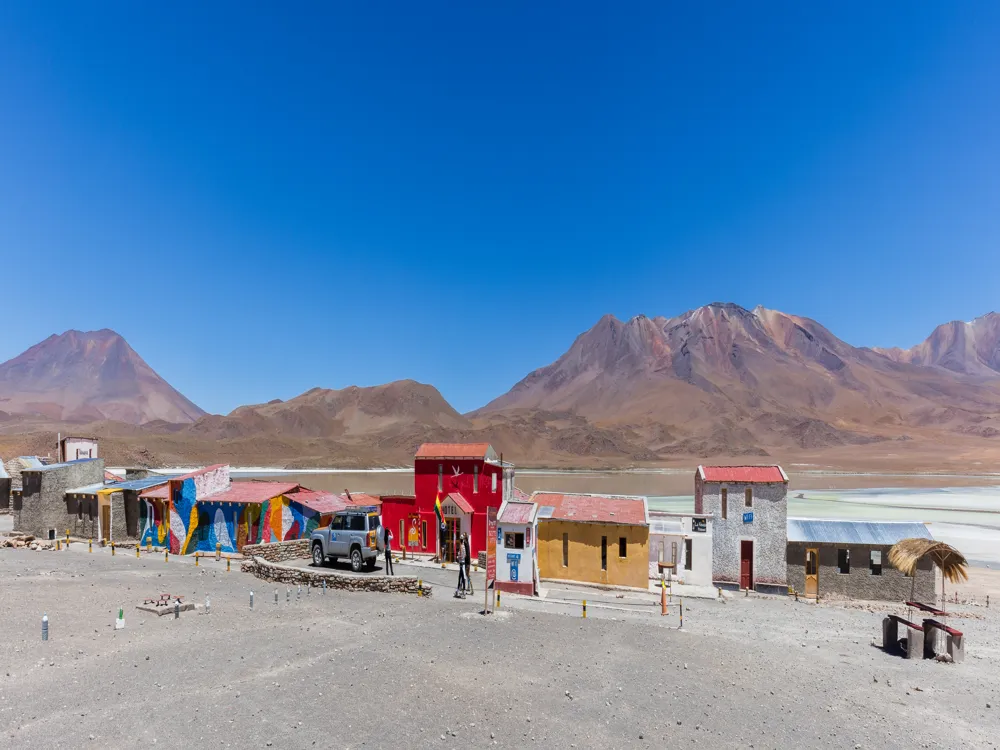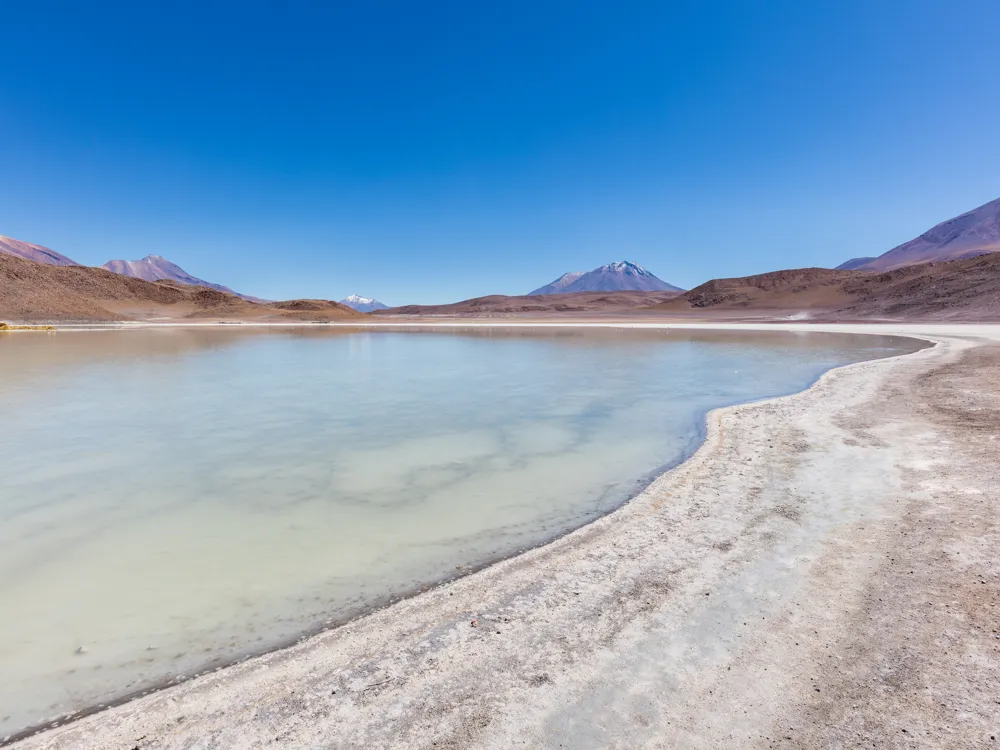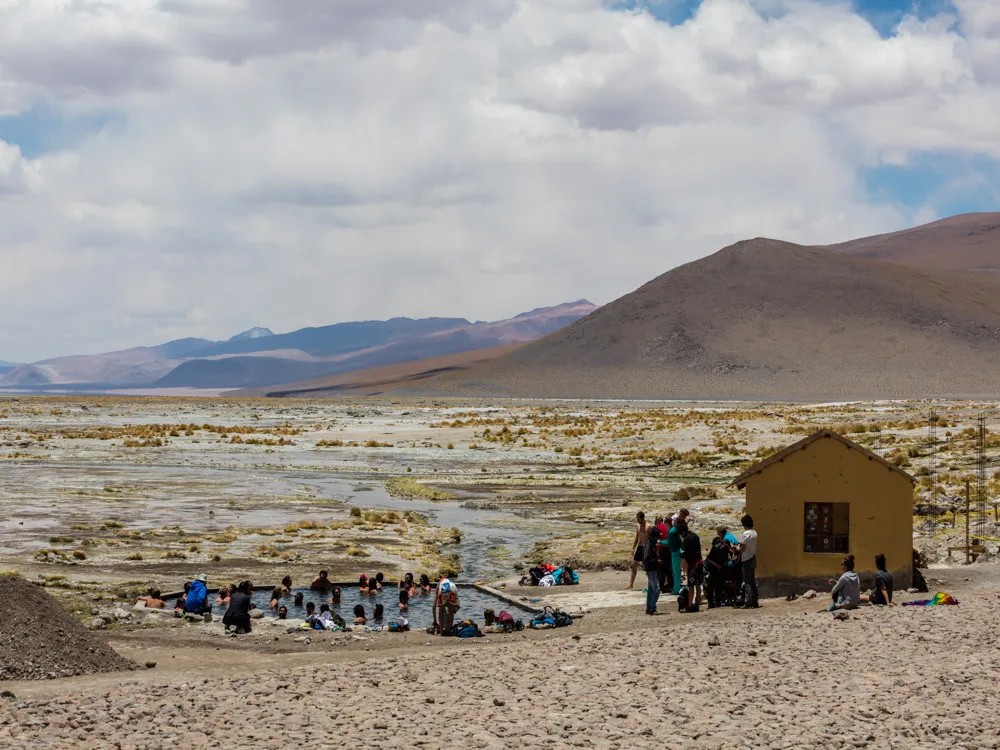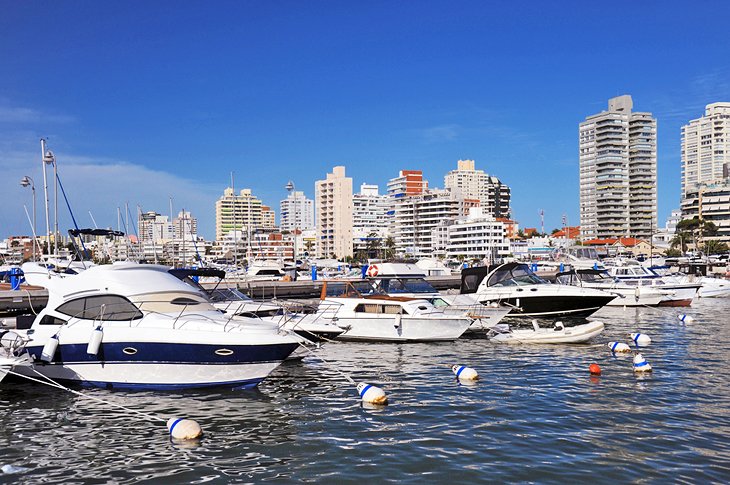Plan Your Travel To Bolivia
Bolivia Travel Essentials
"The Roof Top of the World."
Bolivia Tourism
Bolivia is a landlocked country in South America that is well-known for its breathtaking scenery and vibrant native culture. Bolivia has a vast array of outdoor activities for those who like the great outdoors, thanks to its varied topography, which includes the Andes Mountains and the Amazon Basin. Explore the world-famous Salar de Uyuni, the biggest salt flat, or go into the Amazon jungle to see rare animals and a plethora of colourful species. History aficionados might also be attracted to Bolivia's ancient ruins, which include Tiwanaku and Puma Punku. Bolivia provides visitors with a genuinely remarkable experience with its lively marketplaces, eye-catching festivals, and kind people.
Must Know Before You Travel to Bolivia
- Altitude: Be prepared for high altitudes, especially in cities like La Paz. Acclimatise slowly to avoid altitude sickness.
- Weather: Bolivia experiences diverse climates, so pack accordingly.
- Visa Requirements: Check the visa requirements for your nationality before travelling.
- Safety: Be cautious of petty theft in crowded areas and use reputable transportation services.
- Health Precautions: Consult a healthcare professional for vaccinations and carry necessary medications.
- Language: Spanish is the official language, but indigenous languages are also spoken.
- Currency: Bolivian Boliviano (BOB) is the official currency.
- Local Cuisine: Try traditional dishes like salteñas, llama meat, and quinoa.
- Coca Tea for Altitude Sickness: Coca tea is a traditional remedy for altitude sickness. It's widely available and can help alleviate symptoms.
- Respect Local Customs: Be aware of local customs and traditions, especially in indigenous communities.
- Transportation Challenges: Bolivia's terrain can make transportation challenging. Be prepared for long and bumpy rides, especially if you plan to explore rural areas.
- Political Situation: Stay informed about the current political situation. Protests and demonstrations occasionally occur, so be aware of your surroundings and follow local news.
- Photography Etiquette: Ask for permission before taking photos, especially of locals. Some people may prefer not to be photographed.
- Explore Diverse Landscapes: Bolivia offers diverse landscapes, from the Andes Mountains to the Amazon Rainforest. Plan your itinerary to experience the rich natural beauty.
- Bargaining in Markets: Bargaining is common in markets. Practice your negotiation skills, but do so respectfully.
Tourist Places to Visit In Bolivia
Bolivia Travel Packages
Compare quotes from upto 3 travel agents for free
View All Packages For Bolivia
More on Bolivia Travel
All collections about Bolivia
Best time to visit Bolivia
Depending on the region ,Bolivia can be visited throughout the year. However, the best time to travel is from April- October. NaN
Read More on Bolivia Travel
Exchanging money in Bolivia:
It's important to know how much the Bolivian Boliviano (BOB), the country's currency, is while travelling there. Major cities and airports have currency exchange services. However, since US dollars are commonly recognised and simple to exchange, it's a good idea to include some in modest quantities. Watch out for unauthorised money changers and make sure you always have enough cash. In cities, credit cards are accepted; in more rural locations, cash is preferable. Although there are plenty of ATMs, it's advisable to let your bank know about your vacation itinerary to prevent any problems using your card.
Nightlife in Bolivia:
Bolivia's nightlife offers a mix of traditional and contemporary experiences. La Paz and Santa Cruz boast lively bars, clubs, and music venues. You can enjoy live Andean music, salsa dancing, and international DJ sets. In smaller towns, local peñas showcase traditional Bolivian music and dance, providing an authentic cultural experience. Be mindful of safety, avoid excessive drinking, and stick to well-lit, populated areas, especially if you're out late. Bolivia's nightlife caters to a diverse crowd, ensuring there's something for everyone.
Shopping in Bolivia:
Bolivia's nightlife provides a blend of modern and traditional activities. There are many fun pubs, clubs, and music venues in La Paz and Santa Cruz. Live Andean music performances, salsa dancing, and international DJ sets are all available. Local peñas in smaller towns offer a genuine cultural experience by showcasing traditional Bolivian music and dancing. Particularly if you're out late, use caution, abstain from intoxication, and limit your drinking to well-lit, frequented locations. Bolivia's nightlife offers something for everyone by appealing to a wide range of people.
Festivals in Bolivia:
Colourful festivals are held all year to celebrate Bolivia's rich cultural legacy. A highlight is the Oruro Carnival, which is renowned for its extravagant costumes and folk dances. Cities like Sucre and Potosi host processions and religious ceremonies throughout Semana Santa, often known as Holy Week. In Tiwanaku, vibrant festivities are held to commemorate the Inca sun god, Inti Raymi. When making travel plans, be sure to check the local calendars since each location has its own distinct celebrations. Take part in parades, enjoy the variety of food offered, and embrace the festive atmosphere of these celebrations.
Hygiene in Bolivia:
When travelling in Bolivia, it's important to practise excellent hygiene. Although bottled water is commonly accessible, tap water is usually unsafe to consume. Use it to rinse fruits and vegetables, drink, and wash your teeth. You should always include hand sanitizer in your travel gear because soap isn't always accessible. Take it slow the first day in high-altitude regions, like La Paz, to get used to the thin air. When consuming street food, use caution and make sure it's cooked in a hygienic setting. Maintaining proper hygiene is essential to your health and enjoyment of your trip to Bolivia.
Tips for visiting Bolivia:
Being ready for Bolivia's particular difficulties is essential while travelling there. Some tourists may experience altitude sickness, so gradually adjust and drink plenty of water. Particularly in indigenous groups, it is important to respect local customs and traditions. Preserve your possessions and refrain from flaunting your affluence. It will be quite beneficial to learn a few simple Spanish phrases because English may not be spoken everywhere. Consider social and political difficulties, and research travel warnings prior to departure. Ultimately, fully engage with the abundant culture, sample regional cuisine such as salteñas, and appreciate the varied topography spanning from the Andes to the Amazon.
Foods of Bolivia:
Due to the impact of Spanish tastes and indigenous traditions, Bolivian cuisine provides a rich gastronomic experience. Taste the salteñas, which are delicious pastry stuffed with veggies or meat. A specialty of the area are anticuchos, which are grilled and skewered cow hearts. One common grain that's used in salads and soups is quinoa. Selpancho is a breaded and fried beef cutlet that is served with potatoes, rice, and fried eggs. Don't miss it. Popular street foods are empanadas, which are loaded with a variety of fillings. Try the warm corn-based beverage api or the fermented corn beverage chicha. Bolivian food is diverse and offers something for every taste, reflecting the nation's rich cultural legacy.
Photos of Bolivia
All Country Photos Bolivia
Popular Questions And Answers on Bolivia
What is Bolivia famous for?
Bolivia is famous for its stunning landscapes, including the Andes Mountains and the Uyuni Salt Flats. It's also known for its rich indigenous culture and traditions.
What are the top tourist attractions in Bolivia?
Some of the top tourist attractions in Bolivia include the Uyuni Salt Flats, Salar de Uyuni, Lake Titicaca, La Paz, Potosi, and the Amazon Rainforest.
Is Bolivia safe for travelers?
Bolivia is generally safe for travelers, but like any destination, it's essential to take usual safety precautions. Be aware of your surroundings and follow local advice.
What is the best time to visit Bolivia?
The best time to visit Bolivia is during the dry season, which typically runs from May to October. This is when the weather is most comfortable for travel and outdoor activities.
Do I need a visa to visit Bolivia?
It depends on your nationality. Many countries have visa-free or visa-on-arrival arrangements with Bolivia, while others may require a visa. Check with the Bolivian embassy or consulate in your home country for specific requirements.
What is the currency in Bolivia?
The currency in Bolivia is the Bolivian Boliviano (BOB). US dollars are also widely accepted in some areas.
What is traditional Bolivian food?
Traditional Bolivian dishes include salteñas (empanada-like pastries), llama meat, quinoa, and various potato-based dishes. Don't forget to try some local street food like anticuchos (grilled skewers) and api (a hot beverage).
Can I drink the tap water in Bolivia?
It's generally not recommended to drink tap water in Bolivia. Stick to bottled water or purified water to avoid stomach issues.
What are some cultural customs to be aware of in Bolivia?
When visiting Bolivian communities, it's essential to respect local customs and traditions. It's customary to ask for permission before taking photos of people and their property.
How can I acclimate to the high altitude in Bolivia?
Bolivia has high-altitude regions, so it's important to take it easy when you first arrive to acclimate. Drink plenty of water, avoid strenuous activities, and consider drinking coca tea, a natural remedy for altitude sickness.


_Laguna_Canapa_Bolivia_2016-02-03_DD_63JPG.webp)















